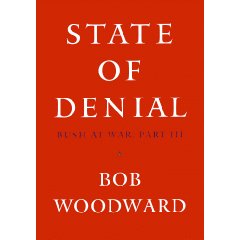Tags
Abundance Fables, Babe (1995), Capitalism, Carnage, Christmas, Excess, Family, Family Dysfunction, Faux Moralisms, History, It's A Wonderful Life (1946), Jesus, Mythology, Origins, Romans, Suicide

A white duck? goose?, December 25, 2016. (http://pinterest.com).
One of the funniest lines in Babe (1995) comes from Ferdinand the duck (who kind of looks like a goose) yelling just before Christmas Day, “Christmas means carnage!,” as he hoped to avoid A. Hoggett’s chopping block for making duck a l’orange. But really, that’s what this holiday has felt like for me for years.
Saying “Jesus is the reason for the season” doesn’t quite help, because that’s only partly true. All the actual evidence points to Jesus’ birthday being either in April or August, not the Winter solstice. The combination of a celebration of Jesus’ birth with either the Saturnalia festivals or the “birthday of the unconquered sun” (sol invictus) commemorations via Constantine and other Roman emperors (take your pick), led to Christmas becoming a December 25th tradition in Europe, the Middle East, and Northern/East Africa. And all of this became formalized by the end of the fourth century CE. So while I believe in Jesus’ life, death, and resurrection, and what Jesus stood for while walking among humans, I don’t see Christmas as a strictly religious, spiritual, or Christian holiday.

The Queen’s Christmas tree, Windsor Castle (steel engraving), published in The Illustrated London News, 1848, in Godey’s Lady’s Book, December 1850. (Wetman via Wikipedia). In public domain.
That’s because of how the holiday came to dominate much of the world. The myth-making in the UK and the US between 1820 and 1870 helped turn an inconsistently celebrated holiday for Jesus’ birth, community, family, and some gift-giving into capitalism at its best and worst. That the Christmas tree didn’t become a common part of the holiday until Queen Victoria and her husband Prince Albert began taking an annual picture of themselves around a tree in 1850 was a function of German influences and British imperialism, not just the beauty of a decorated tree. Christmas cards didn’t become normalized until a German immigrant to the US thought he could make a fortune selling cards for people to mail each other, in the 1860s and 1870s. Congress didn’t make Christmas a federal holiday until 1870, and did so in an attempt to reunite the country around the common idea of Christmas as a form of family healing. Enacted five years after the Civil War and the loss of 620,000 lives, the Christmas holiday was one thing that formerly slave-owning Southerners and anti-slavery/anti-Black Northerners could agree on.
The British and later American influences on the world — military, geopolitical, economic, and popular culture — made the holiday into the trillion-dollar business that is today. You do not have to be Christian, Muslim, or even Jewish to celebrate the holiday, because while Jesus is important to tens of millions, it is not the unifying theme, and hasn’t been for decades. Commercials and other ads, endless rounds of shopping for the latest in high-tech electronics, the near-global slaughtering of spruce and fir trees, turkeys, chickens, sheep, goats, geese, and yes, ducks. That has been the main theme of Christmas for most, It’s A Wonderful Life’s (1946) annual re-broadcast on NBC notwithstanding.

The bridge scene in It’s A Wonderful Life, where James Stewart’s character’s was contemplating suicide, 1946. (http://salon.com).
I am not bah-humbugging out about the holiday, though. I just want to remind people to not wallow too much in the mythology they tend to believe is universal about the holiday, because most of what people believe about Christmas is at best only one-third true. The fact is, some folks do bug out this time of the year, from loneliness, from a daily reminder during this season that they are the have-nots in a holiday myth built on fables of abundance. And some people attempt to and actually succeed in checking out — some permanently — this time of the year. I should know, because I almost did thirty-three years ago.
And with social media, we reinforce these tensions of economic inequality, of moralistic exclusion, of reading more spiritual meaning into a holiday that has been a big driver of consumer capitalism for nearly 150 years. We essentially stick up middle fingers at those whose families are distant and dysfunctional. We basically blow raspberries at those who do not have enough resources to do much more than provide the basics for themselves and their loved one, with many more having even less. And we shun those who have the audacity to point out the hypocrisy that is the annual holiday season.
Christmas for me has only been a holiday for me because of my younger siblings (when they were just kids, between 1988 and 1996) and because of my wife and now teenage son. I went nearly a decade of my life without Christmas trees, cards, and gifts, a combination of being a Hebrew-Israelite and abject poverty between 1979 and 1988. So despite the temptations of being in this capitalist world and somewhat of it, Christmas is only a big deal to me because of kids and their vulnerability during this time of year. Otherwise, a moment of thanksgiving and prayer, well-prepared food (but not a Saturnalia feast’s worth), and being around those who truly love and care about me is really all I’ve ever needed. That folks may only get a facsimile of this, and only around holidays like Thanksgiving and Christmas (if at all), is part of the carnage that is Christmas.
This, by the way, is what all of us need, every day, Christmas or not. So, Happy Holidays, Merry Christmas, Happy Chanukah, and Merry Kwanzaa, but let’s pay it forward, too!








